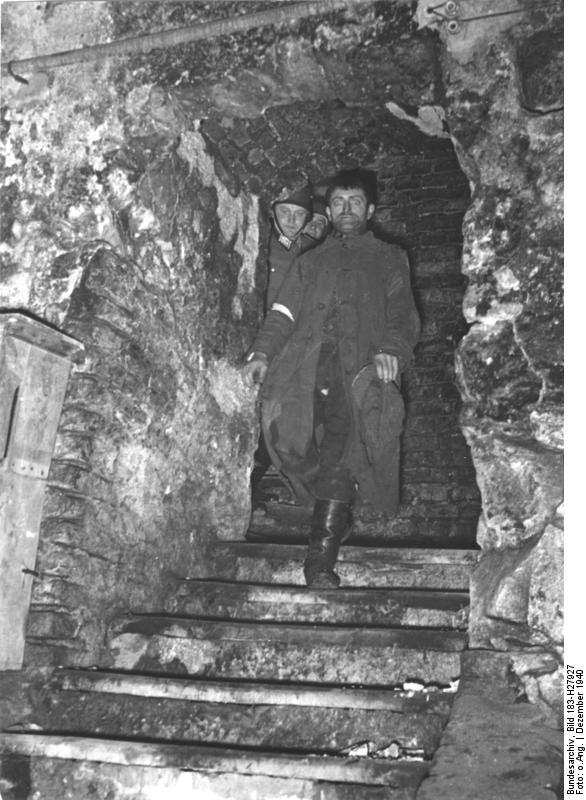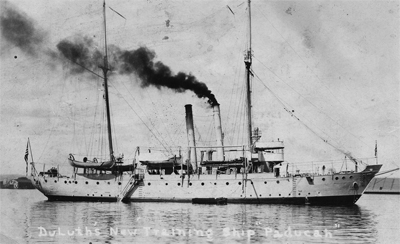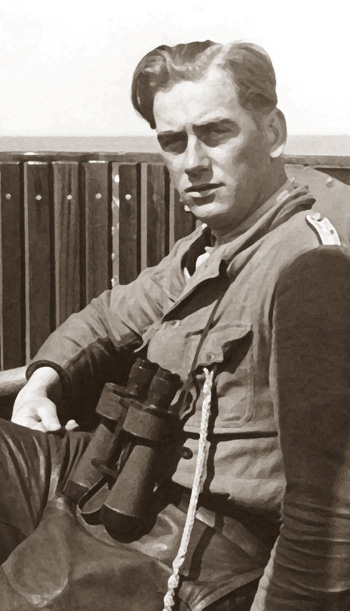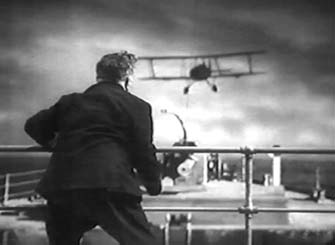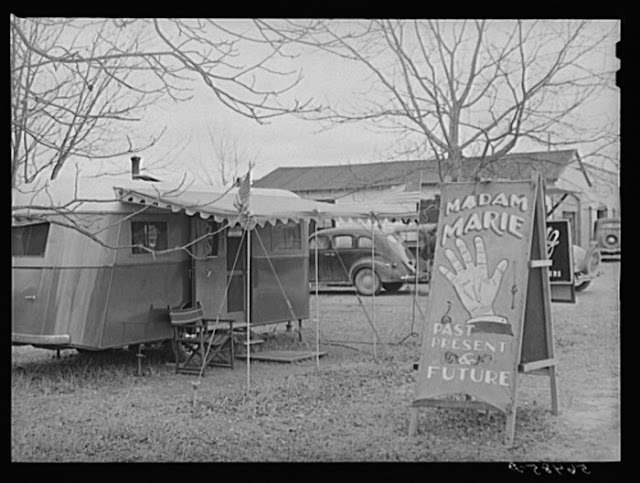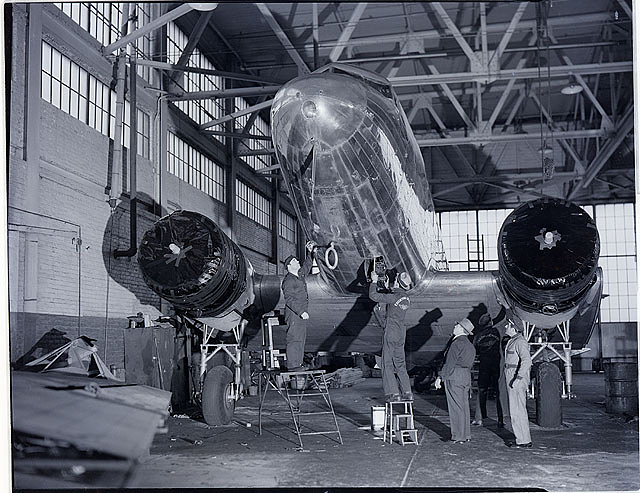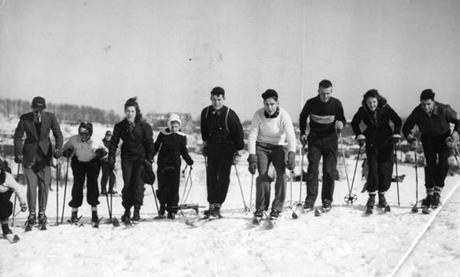Saturday 7 December 1940
 |
| Boeing 314 Clipper NC 18606 lands at Waitemata Harbour, Auckland, December 7, 1940. © Whites Aviation / Alexander Turnbull Library Image WA-00412-G via P. Sheehan Collection - 1950-095. |
European Air Operations: Apparently due to rough weather, the Luftwaffe bombers stay on the ground today, giving England its first full day without any air raids since 7 August 1940. When the weather is sketchy, both sides make different evaluations of whether to mount missions. However, Luftwaffe fighter-bombers and torpedo bombers are operational during the day. After dark, RAF Bomber Command decides to go and sends bombers against Düsseldorf.
RAF No. 263 Squadron is equipped with the new Westland Whirlwind twin-engine fighter. It has a good range and will be used on convoy duties.
British 1827 ton freighter Lormont, operating as a guard ship and fitted with deck guns, collides with Royal Navy 213 ton minesweeping trawler Cortina near the mouth of the Humber, likely in part due to the weather. Both ships sink
Dutch 2489 ton freighter Stolwijk, part of Convoy SC 13, runs aground in County Donegal, Ireland and is lost. There are 10 deaths and 18 survivors. This loss is directly attributable to the weather, as the storms damage her rudder. She breaks up on the rocks off Tory Island. The Irish lifeboat crew earns medals from the Netherlands and the British for their heroic rescue of the crew.
Royal Navy destroyer HMS Sabre attempts to rescue the crew of the Stolwijk during the storm and sustains heavy damage to her superstructure. She must put into Derry for repairs.
Canadian 1747 ton freighter Watkins F. Nisbet runs aground and is lost in the Bristol Channel. The date on this is unclear, it may have run aground on the 6th and then been written off today. The stern section is salvaged.
Royal Navy destroyer HMS Sabre is damaged by the weather while returning from escort duties and puts in at Belfast for repairs.
Destroyer HMS Broadway is damaged in a collision at Scapa Flow, likely in part due to the weather, and sails to the Humber for repairs.
U-99 (Kplt. Otto Kretschmer), on its 7th patrol out of Lorient, sights Convoy OB 252 southwest of Ireland and torpedoes and sinks 5237-ton Dutch collier Farmsum. There are 12 deaths in the sinking, 4 crewmen perish of exposure in the lifeboats, and 15 survive. The weather is bitter, and the survivors all have severe frostbite when picked up by HMS Ambuscade.
Royal Navy submarine HMS Sunfish torpedoes and damages 1715-ton Norwegian tanker Dixie in the North Sea.
The Luftwaffe attacks the Humber area and damages 827-ton British freighter Yewarch.
Royal Navy 219-ton minesweeping trawler Capricornus hits a mine and sinks in the Thames Estuary near the Nore Light Vessel.
German raider Admiral Hipper departs from Kiel to enter the North Atlantic as Operation Nordseetour.
German battleship Bismarck enters the Kiel Canal.
U-66 refuels and restocks at sea from German supply ship Nordmark, enabling it to prolong its voyage.
Four Royal Navy minelayers operate east of Iceland, laying minefield SN 10A.
Convoy FN 353 departs from Southend, Convoy FN 354 remains in port, Convoys SLS 58 and SL 58 departs from Freetown.
 |
| German troops roust Jewish men living in a cellar in Lublin on 7 December 1940 (Ang, Federal Archives). |
As part of the preparation for Operation Compass, RAF Wellington bombers based on Malta raid the Castel Benito airfield in Libya. They destroy 29 Italian planes.
The Royal Navy also is involved in Operation Compass. Monitor HMS Terror, gunboat HMS Ladybird, and minesweeper HMS Bagshot form Force A from Alexandria and head for positions off the Italian bases in Egypt. They bombard Sidi Barrani.
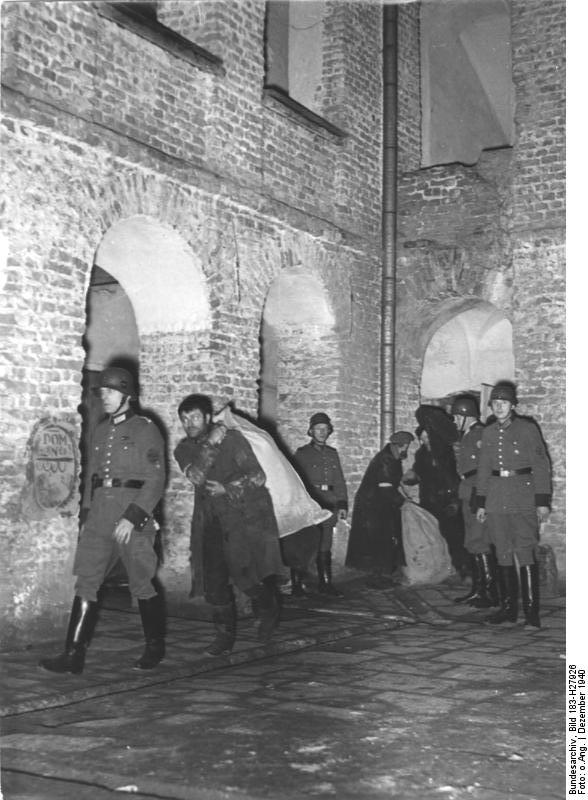 |
| German police escorting Lublin Jewish men away to an unknown fate, 7 December 1940 (Ang, Federal Archive). |
German raiders Komet and Orion are operating off Nauru west of the Gilbert Islands. The weather is poor, preventing their plan to bombard the phosphate operations on the island. However, during the evening, Komet, disguised as Japanese freighter Manyo Maru, encounters and sinks 5264-ton Norwegian freighter Vinni about 10 km south of the island. The disguise, incidentally, works perfectly, and although the Komet is spotted from the shore, it is believed to be a harmless Japanese freighter. Everybody on board the Vinni is taken aboard the Komet.
German/Italian Relations: Following his interview with German Foreign Minister Ribbentrop on 6 December, Italian Ambassador Dino Alfieri meets with Adolf Hitler. Alfieri is there to plead for German assistance with the campaign in Albania, and perhaps diplomatic overtures by Germany to end the conflict. Hitler agrees to authorize fifty transport planes for use by the Italians in moving troops across the Ionian Sea. He also urges Mussolini to implement harsh measures, including courts-martial and executions to get his men to fight.
Italian Military: Mussolini continues his purge of the top leadership of the Italian military, dismissing General Cesare de Vecchi, Governor of Dodecanese Islands, and replacing him with General Ettore Bastico.
British Military: The prototype Fairey Barracuda has its first flight. It is intended to replace the Fairey Swordfish and Fairey Albacore biplanes. The test flight goes well, but the plane as currently equipped is underpowered and suffers from a poor rate of climb.
The 100th Beaufighter is completed at Filton, South Gloucestershire, England.
Canadian Homefront: The Ottawa Rough Riders defeat the Toronto Balmy Beach Beachers, 12-5, in the second of the two-game series for the 28th Grey Cup of Canadian football.
American Homefront: The American Federation of Labor (AFL) estimates that there are 8.13 million unemployed workers in the United States.
Future History: Gerald Michael Cheevers is born in St. Catharines, Ontario. At the age of 16, Cheeves joins the St. Michael's Majors of the Ontario Hockey Association, then in 1965 is drafted by the Boston Bruins. He goes on to become their starting goaltender, winning two Stanley Cup championships and set a record of 32 undefeated consecutive games in 1972 that still stands. Gerry Cheevers retires in 1980, later becomes the Bruins' coach, then becomes a broadcaster.
 |
| Santa Claus and an artillery piece in Columbus, Georgia, outside of Fort Benning. December 1940. Marion Post Wolcott/LC-USF34-056550 via Library of Congress. |
December 1940
December 1, 1940: Wiking Division Forms
December 2, 1940: Convoy HX 90 Destruction
December 3, 1940: Greeks Advancing
December 4, 1940: Italian Command Shakeup
December 5, 1940: Thor Strikes Hard
December 6, 1940: Hitler's Cousin Gassed
December 7, 1940: Storms At Sea
December 8, 1940: Freighter Idarwald Seized
December 9, 1940: Operation Compass Begins
December 10, 1940: Operation Attila Planned
December 11, 1940: Rhein Wrecked
December 12, 1940: Operation Fritz
December 13, 1940: Operation Marita Planned
December 14, 1940: Plutonium Discovered
December 15, 1940: Napoleon II Returns
December 16, 1940: Operation Abigail Rachel
December 17, 1940: Garden Hoses and War
December 18, 1940: Barbarossa Directive
December 19, 1940: Risto Ryti Takes Over
December 20, 1940: Liverpool Blitz, Captain America
December 21, 1940: Moral Aggression
December 22, 1940: Manchester Blitz
December 23, 1940: Hitler at Cap Gris Nez
December 24, 1940: Hitler at Abbeville
December 25, 1940: Hipper's Great Escape
December 26, 1940: Scheer's Happy Rendezvous
December 27, 1940: Komet Shells Nauru
December 28, 1940: Sorge Spills
December 29, 1940: Arsenal of Democracy
December 30, 1940: London Devastated
December 31 1940: Roosevelt's Decent Proposal
2020
